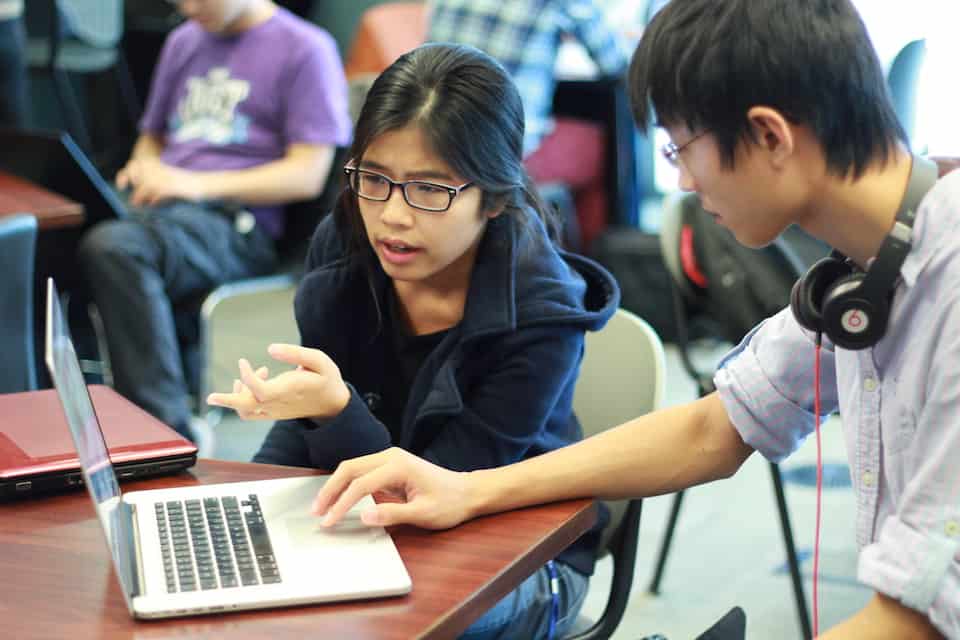“[We expected] 50 people if we were lucky,” said Computer Science Student Union (CSSU) vice president Ivan Zhang regarding the turnout of the first meeting of ‘Hack Night.’
After just six days of promotion, over 400 people signed up.
Hack Night is a brand-new event organized by the CSSU, which is intended to be a mini-hackathon bringing together ‘code-cubs’ and ‘code-ninjas’ for a night of coding, learning, and innovation.
Their first official meeting was held earlier this month.
“In terms of planning, we were not expecting those numbers,” said Zhang, “…we realized our budget was not going to work for this scale, even with the money we received from our generous sponsor, Google.”
“If even a quarter of the people who RSVP’d or signed up show up, we were screwed. An hour before the event we finally made the call to reach [out to] the department [of Computer Science] for financial aid and we were very grateful with how quickly they were able to accommodate […] our requests, and we were able to feed everyone,” he added.
Despite being thrown the unexpected budgetary curveball, the CSSU managed the event seamlessly. Large rooms in Bahen were packed with coders working on their individual projects while mentors were at hand to provide insight and help where needed.
“One of the coolest things I saw a hacker do was make an AI… play Tinder and try to deceive unsuspecting men into dates,” said Zhang.
“Although the morals behind this project is questionable, I’m still blown away with what was accomplished in mere hours.” Another impressive accomplishment was a web strategy game that pitted white blood cells against viruses within the human body.
Part of the Hack Night experience was an informative tech talk, delivered by Arseniy V. Ivanov, a formely lead developer at 500px and current computer science student. In his third year at U of T he joined 500px (pronounced 500 pixels) — an online Canadian photographic community with six million registered users — where he remained for three years as lead developer, building robust systems and solving problems at scale.
As Hack Night will be a monthly event from now on, Zhang has a vivid image of how he wants to see it evolve.
“My vision for hack nights is for it to become a tradition in the downtown core community for students who are interested in code to come together and collaborate. Not only will it be for just U of T students, but for all students from neighboring schools to come and collaborate with each other. This time we had students from high schools from North York to all the way up in York Region. We also had a few students from McGill, Ryerson, Waterloo, UOIT, and York. One of the focuses we are working on for our next iteration is to make it more open to non-tech students who want to learn code. We are getting feedback from attendees and our team is looking into the best method to make this possible.”
The next Hack Night event is planned for October 30 from 4:00 to 8:00 p.m.


